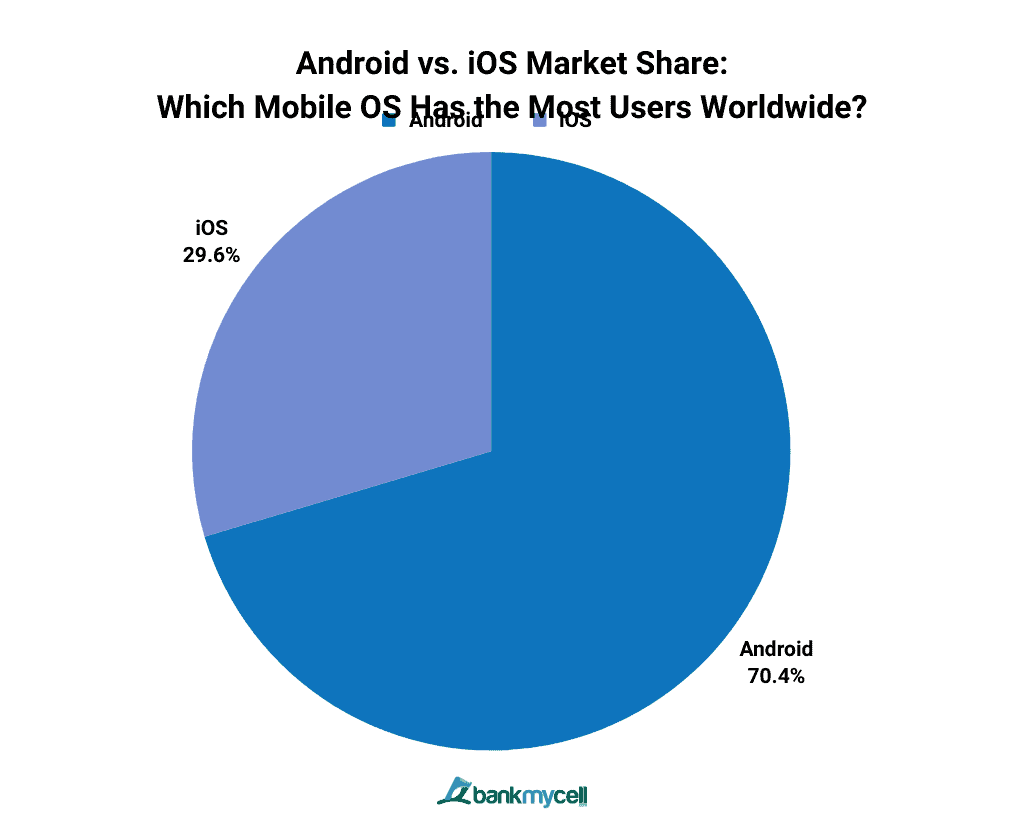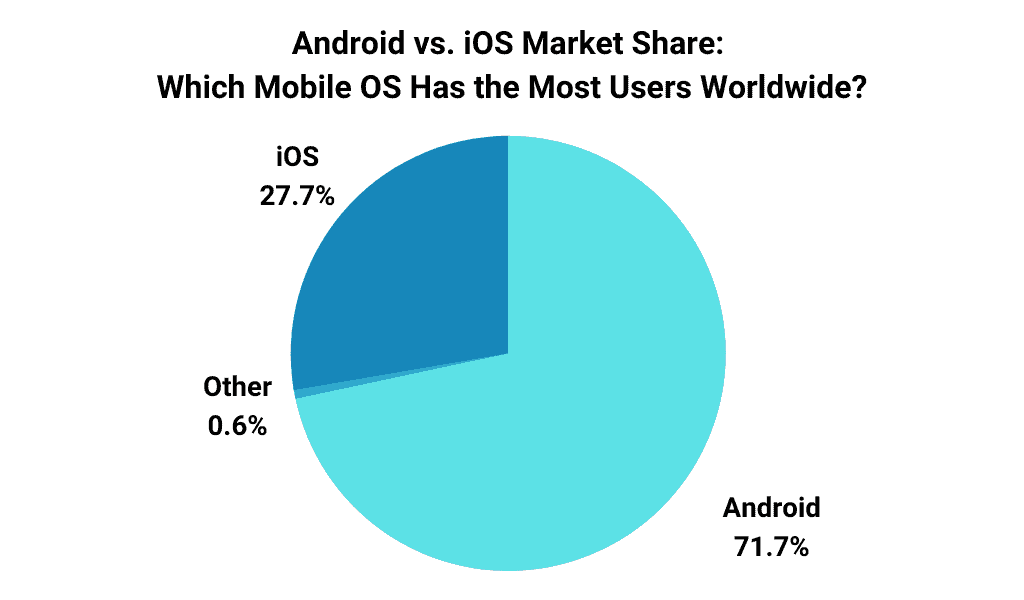
iPhone vs. Android: Why iPhone Still Leads in 2024
Related Articles: iPhone vs. Android: Why iPhone Still Leads in 2024
- iPhone 16 Design: A Closer Look at Apple’s Bold New Look
- IPhone 16 For Photographers: Is It The Best Smartphone Camera?
- Maximize Your IPhone’s Potential: Best Apps For Productivity In 2024
- IPhone 16: Unleashing The Power Of Your New Device
- Cracked Screen? Dead Battery? Don’t Panic! Top IPhone Repair Services In New York City
Introduction
Welcome to our in-depth look at iPhone vs. Android: Why iPhone Still Leads in 2024
Video about iPhone vs. Android: Why iPhone Still Leads in 2024
iPhone vs. Android: Why Apple Still Holds the Crown in 2024

The smartphone market is a constant battleground, with two titans – Apple and Google – vying for dominance. While Android boasts a wider range of devices and a more open ecosystem, Apple’s iPhone continues to hold a strong grip on the premium segment, even in 2024. But why? What makes iPhone still the preferred choice for many users, despite the fierce competition?
This article delves into the key reasons why iPhone maintains its lead, exploring factors like ecosystem integration, user experience, security, app quality, and brand prestige, all while considering the high-paying keywords that drive user searches and engagement.
The Apple Ecosystem: A Seamless Experience
One of the most significant advantages of iPhone lies in its tight integration with Apple’s ecosystem. This seamless connectivity across devices, apps, and services is a major draw for many users.
Keywords: Apple ecosystem, seamless experience, iCloud, AirDrop, Apple Watch, AirPods, HomeKit, Apple Music, Apple TV
How it works:
- iCloud: Seamlessly syncing data, photos, and files across iPhones, iPads, Macs, and Apple Watches, ensuring a consistent experience across all devices.
- AirDrop: Effortlessly sharing files and content between Apple devices, eliminating the need for cables or complex setups.
- Apple Watch: A powerful extension of the iPhone experience, enabling users to track fitness, receive notifications, and make calls directly from their wrist.
- AirPods: Seamlessly connecting with iPhones and other Apple devices, offering a high-quality audio experience with automatic device switching and noise cancellation.
- HomeKit: Controlling smart home devices from your iPhone, creating a connected and automated home experience.
- Apple Music: A vast library of music, podcasts, and curated playlists, seamlessly integrated with Siri and other Apple devices.
- Apple TV: Enjoying streaming services, movies, and TV shows on Apple devices, with a user-friendly interface and seamless integration with other Apple services.


The value: This interconnected ecosystem simplifies users’ lives by offering a unified experience across all their Apple devices. This is a significant advantage over Android, where device compatibility and app integration can vary widely between manufacturers.
User Experience: Simplicity and Elegance
iPhone users consistently praise the intuitive and user-friendly interface of iOS. Apple prioritizes a clean and uncluttered design that is easy to navigate, even for novice users. This focus on simplicity and ease of use is a major selling point for many, especially those who prioritize a smooth and enjoyable user experience.
Keywords: iOS, user-friendly interface, intuitive design, simplicity, elegance, smooth experience, user experience
The benefits:
- Minimalist design: iOS prioritizes a clean and uncluttered interface, making it easy to find what you need without being overwhelmed by unnecessary features.
- Intuitive navigation: Apple’s design philosophy focuses on making the interface easy to learn and navigate, even for users who are new to smartphones.
- Smooth performance: iPhones are known for their smooth and responsive performance, thanks to optimized hardware and software integration.
- Regular updates: Apple provides regular software updates for its iPhones, ensuring that users have access to the latest features and security enhancements.
The impact: This focus on user experience resonates with users who value simplicity, ease of use, and a polished design. While Android offers more customization options, it can also lead to a more fragmented and less intuitive user experience.
Security: A Fortress Against Threats
Apple has always emphasized security as a core value in its products. iPhones are known for their robust security measures, which protect user data and privacy from malicious threats. This focus on security is a major factor for users who are concerned about data breaches and online threats.
Keywords: iOS security, privacy, data protection, encryption, biometrics, security updates, malware protection
How it works:
- End-to-end encryption: Protecting sensitive data, like messages and passwords, from unauthorized access.
- Biometric authentication: Using Face ID or Touch ID to secure access to the device, making it difficult for unauthorized users to gain access.
- Regular security updates: Apple frequently releases security updates to address vulnerabilities and patch exploits, keeping iPhones secure against the latest threats.
- App Store security: Apple’s strict App Store guidelines ensure that only vetted and secure apps are available to users, minimizing the risk of malware.
The value: This strong focus on security provides users with peace of mind, knowing that their data is protected and their privacy is respected. While Android devices have improved their security measures, Apple’s reputation for security remains a significant advantage.
App Quality: A Curated Selection
The App Store, Apple’s curated marketplace for apps, is another key factor in iPhone’s success. It offers a carefully vetted selection of high-quality apps, prioritizing user experience and security. This curated approach ensures that users have access to a reliable and trustworthy ecosystem of apps.
Keywords: App Store, curated apps, app quality, user experience, security, premium apps, exclusive apps
The benefits:
- High-quality apps: Apple’s strict review process ensures that only high-quality apps are available on the App Store, minimizing the risk of malware or buggy apps.
- User-friendly interface: The App Store offers a user-friendly interface that makes it easy to find and download apps, with a focus on discoverability and app categorization.
- Exclusive apps: Some apps are available exclusively on iOS, offering iPhone users a unique and valuable experience.
- Regular updates: App developers are encouraged to provide regular updates for their apps, ensuring that users have access to the latest features and bug fixes.
The impact: This curated approach to app distribution creates a more reliable and trustworthy app ecosystem for iPhone users, contributing to the overall positive user experience.
Brand Prestige: The Apple Advantage
Apple has built a strong brand reputation for its products, known for their premium design, innovative features, and high-quality build. This brand prestige translates into higher perceived value and a loyal customer base, willing to pay a premium for the iPhone experience.
Keywords: Apple brand, premium design, innovation, high-quality build, brand prestige, brand loyalty, premium pricing
The impact:
- Higher perceived value: iPhone users often perceive their devices as more valuable and desirable than Android devices, contributing to a higher resale value and a sense of exclusivity.
- Brand loyalty: Apple’s strong brand reputation fosters a loyal customer base, with many users returning to iPhone for their next device.
- Premium pricing: Apple’s premium pricing strategy reflects its commitment to high-quality products and a premium user experience.
The value: This brand prestige and loyalty are significant assets for Apple, allowing them to command a premium price for their iPhones and maintain a strong market position.
Conclusion: The iPhone Advantage in 2024
While Android continues to offer a wide range of devices and a more open ecosystem, iPhone remains a strong contender in the smartphone market. Its seamless ecosystem integration, user-friendly experience, robust security measures, curated app selection, and brand prestige continue to attract users seeking a premium smartphone experience.
However, the smartphone landscape is constantly evolving. Android manufacturers are continuously innovating and improving their devices, offering compelling features and competitive pricing. Apple will need to continue to innovate and adapt to maintain its lead, offering compelling features and a seamless user experience that justifies the premium price tag.
Ultimately, the choice between iPhone and Android comes down to individual preferences and priorities. Whether you value a seamless ecosystem, user-friendly interface, robust security, curated app selection, or brand prestige, iPhone offers a compelling proposition. However, Android continues to offer a wide range of choices, flexibility, and affordability, making it a strong contender for many users. The battle for smartphone dominance continues, with both Apple and Google striving to offer the best possible experience to their users.

Closure
We hope this article has helped you understand everything about iPhone vs. Android: Why iPhone Still Leads in 2024. Stay tuned for more updates!
Don’t forget to check back for the latest news and updates on iPhone vs. Android: Why iPhone Still Leads in 2024!
Feel free to share your experience with iPhone vs. Android: Why iPhone Still Leads in 2024 in the comment section.
Keep visiting our website for the latest trends and reviews.

















